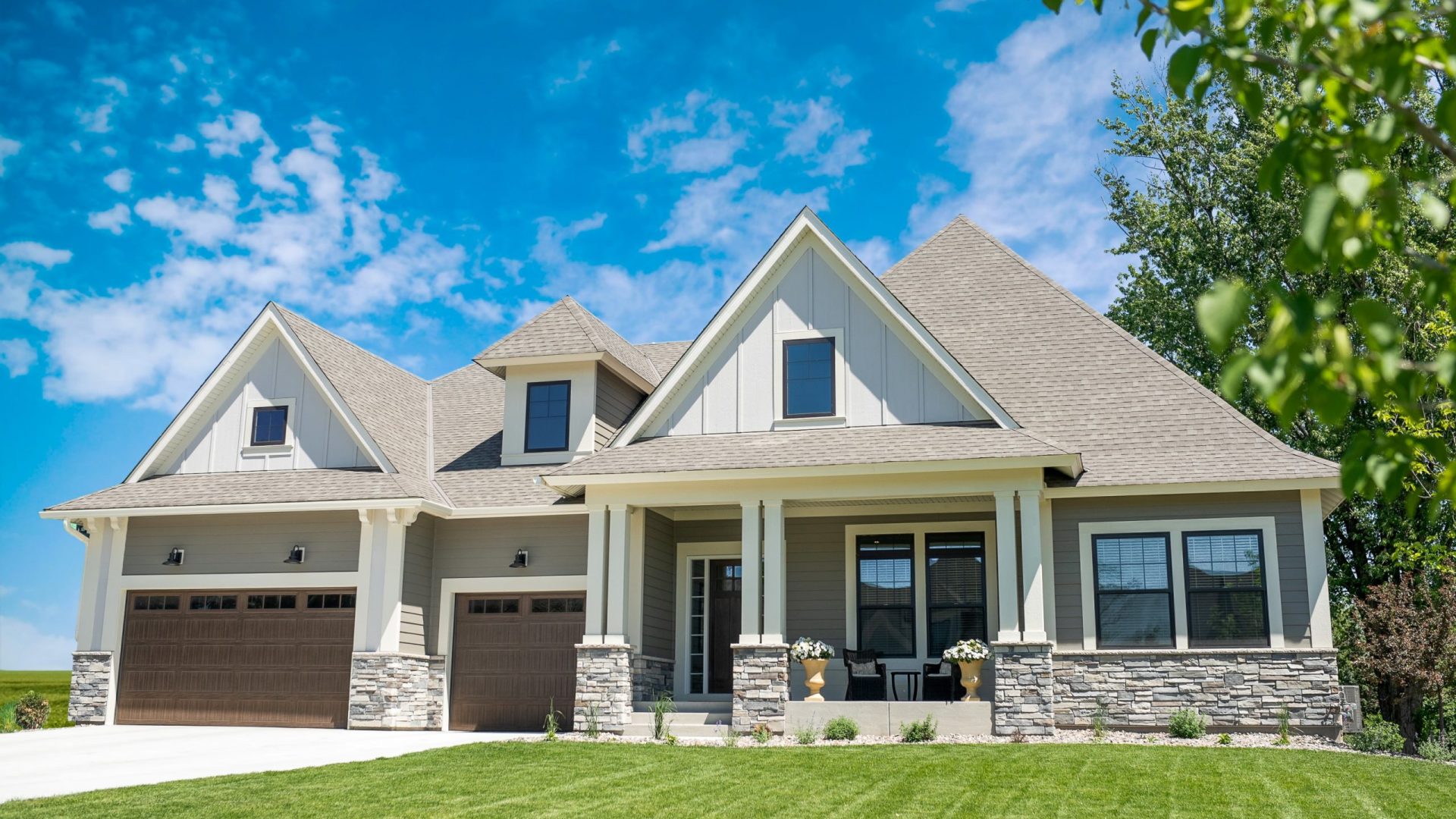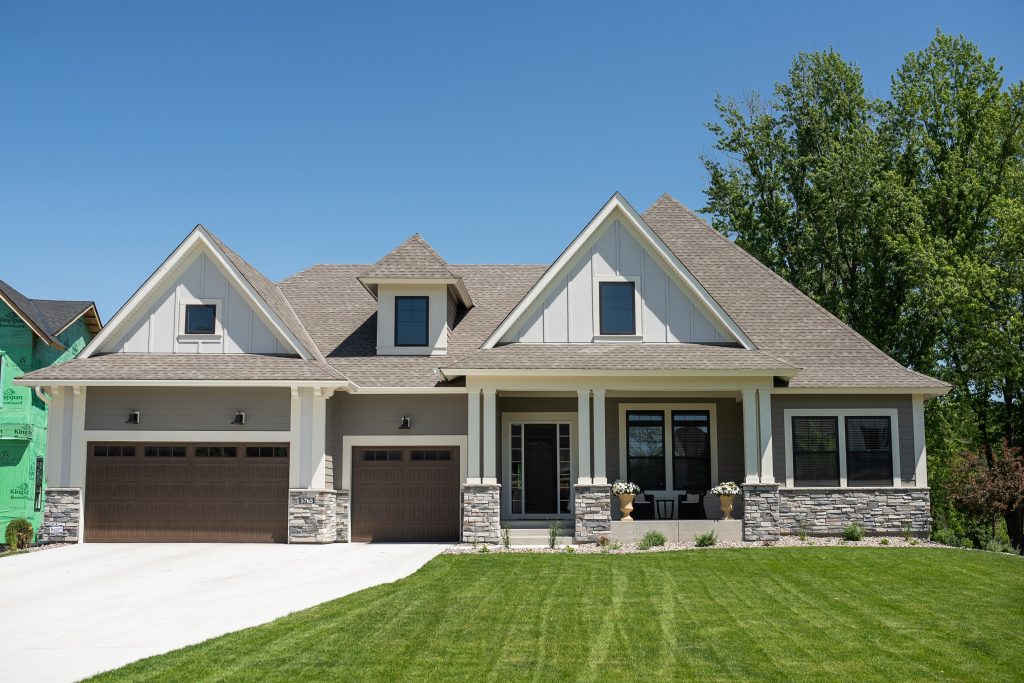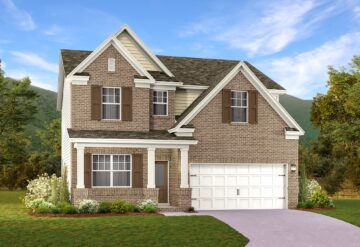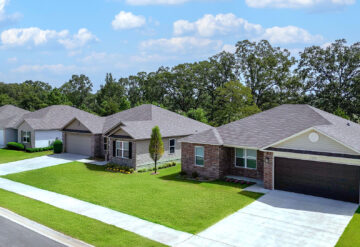As demand for golf course communities declines in some areas, real estate developers are replacing golf with other amenities and attractions to welcome new home buyers. Learn more in this recent article from The Wall Street Journal by Cecilie Rohwedder, featuring Lennar’s Minnetonka Country Club community and homeowners Dan and Nikki Witowski.
Jim and Wanda Dill had lived in a golf-course community in Naples, Fla., for 14 years when they decided to move nearby to a different master-planned community, where the main draw is water.
Their current home, Naples Reserve, is built around a 125-acre lake and woos home buyers with waterfront living, boating, fishing and a tiki bar. The $500,000, three-bedroom house the Dills bought in 2015 overlooks the lake and a nature preserve. From there, they go kayaking, bike on lakeside paths and take their Goldendoodle, Chelsea, to the dog park.
“I play golf. I love golf, but we were ready for something different,” says Mr. Dill, 69 years old and a retired corporate attorney. With his wife, 66, a CPA, he divides his time between the 2,100-square-foot house in Naples and a summer home on Lake Geneva, Wis., near his native Chicago area.
Real-estate developers have long lured home buyers with houses along the rolling greens of golf courses, and some still do. But as golf slips in popularity, many are replacing golf with attractions such as lakes and farms, biking and hiking trails, trendy amenities like microbreweries, food-truck courts, and lifestyle directors who plan mixology classes and pickleball leagues.
Naples Reserve, a 688-acre, $70 million project, was originally zoned as a golf community when iStar, a New York-based real-estate investment, financing and development firm, changed course. The company took the land in 2012 as collateral on a defaulted loan but concluded that Naples—an affluent city on Florida’s gulf coast with a population of 22,000 that grows in the winter months—had enough golf courses, according to Heather Thompson, marketing director at Naples Reserve.
Instead, their research showed many home buyers preferred water and a casual, community-geared lifestyle over the formal, exclusive feel of a golf- or country-club setting. In 2015, the first residents moved in.
For all the complications with redevelopment—from zoning restrictions to pushback from existing homeowners—demand for land is strong and the new communities can be more profitable than maintaining golf operations.
“Sometimes, the dirt is worth more than the grass,” says Joe Beditz, president and chief executive of the National Golf Foundation.
In Palm Springs, Calif., Bruce Juenger and Jim Whitmoyer from Aliso Viejo are the first buyers in a new gated community, Miralon, which is turning an abandoned golf course into an olive grove with 1,150 homes. Former golf-cart paths will be walking trails and water hazards have been converted to decorative lakes at the development, which also has citrus trees and community gardens.
After research on sustainable agriculture and potential buyers, the developer, Boston-based Freehold Communities, settled on the target group’s interest in sustainability, food and a healthy outdoor lifestyle. “The Coachella Valley is chock-full of golf courses,” says Brad Shuckhart, president of the company’s California division. “We saw this as an opportunity to do something different.”
Freehold Communities studied annual water consumption and suitability for the desert habitat before deciding on 7,000 olive and citrus trees. The company commissioned a technical study from a water-engineering firm that showed the trees would use about 23% less water than the existing golf course.
Mr. Whitmoyer, 56, and Mr. Juenger, 68, bought a three-bedroom, 2,800-square-foot house with a modernist design and a view of olive trees for $730,000.
Mr. Juenger, a sales manager at a real-estate financial-services firm, is planning to use the community kitchen and gardens. His husband, Mr. Whitmoyer, an instructor with the Automobile Club of Southern California, says they also are looking forward to taking their 13-year-old bichon-poodle mix, Elton, to the three dog parks.
The developer of Lennar at Minnetonka Country Club, Miami-based Lennar Corp., has redeveloped golf courses in other states, including California, Florida and Colorado. In 2018, it started selling homes on the 118-acre plot near Lake Minnetonka. For Lennar, the site was an opportunity to build new houses in an established community near Minneapolis, with stores, restaurants and good schools but aging housing stock.

“While there are typically many intricate entitlement and development issues that need to be carefully resolved, old golf courses create great new home communities,” said chief executive officer Rick Beckwitt in an email.
Read the full article from The Wall Street Journal.






